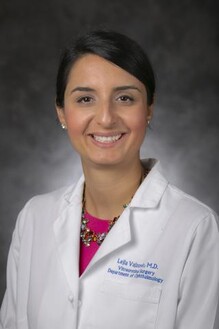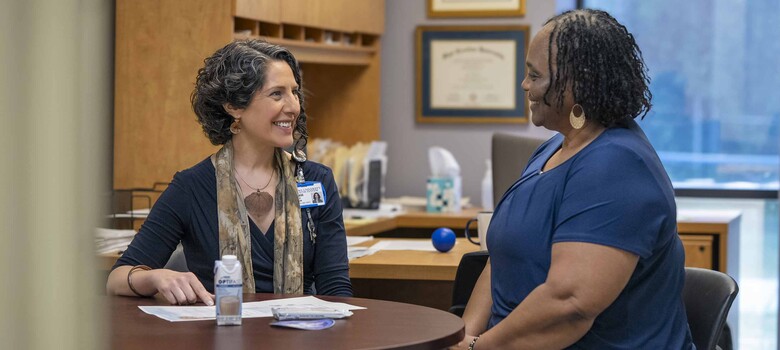 From the DukeHealth.org archives. Content may be out of date.
From the DukeHealth.org archives. Content may be out of date.
Duke Implants "Bionic Eye"
Restores Limited Vision After Blindness from Retinitis Pigmentosa

Larry Hester, the first patient in North Carolina to receive what has been dubbed a “bionic eye,” has no illusions that he will emerge from surgery at the Duke Eye Center as the Six Million Dollar Man -- better, stronger, faster.
Hester says having any amount of vision restored after 33 years of failing eyesight and, eventually, total blindness, will be an improvement that is beyond miraculous.
“This is something wonderful and extraordinary, and it’s happening in our lives!” Hester said.
Hester is just the seventh person in the United States to have received the Argus II Retinal Prosthesis System since its approval by the U.S. Food and Drug Administration last year.
Paul Hahn, MD, a Duke retinal specialist, implanted the device Wednesday and will work with Hester over the next weeks and months to activate and calibrate the implant, which provides electrical stimulation to the retina and restores some vision, including the ability to discern light and objects.
The device is approved for patients who, like Hester, have retinitis pigmentosa, a degenerative eye condition.
Dr. Hahn said several components of the device were actually conceived and developed by Duke Eye Center alumni, so his interest in making the device available to Duke patients was a natural fit.
For Hester and his wife, Jerry, the opportunity to be the first in the area to receive the device was one they could not pass up. Hester said his fondest hope is to see the fireworks on the Fourth of July -- an annual treat his family has enjoyed at the beach for years.
“We are so happy it’s happening,” Jerry Hester said. “Our cheeks hurt from smiling so much.”
Learn more about Duke's implant of the first bionic eye in North Carolina in this local coverage:
- News & Observer: Duke Fts NC's First "Bionic Eye"
- WRAL: Implant Provides Limited Eyesight to Blind Raleigh Man



